Notebook
-
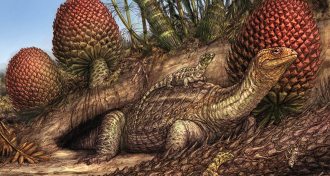 Animals
AnimalsA rare, ancient case of bone cancer has been found in a turtle ancestor
A 240-million-year-old fossil reveals the oldest known case of bone cancer in an amniote, a group that includes mammals, birds and reptiles.
-
 Materials Science
Materials ScienceA new fabric becomes more breathable as you work up a sweat
A yarn-based textile can switch from breathable to insulating and back again, depending on how much you sweat.
-
 Plants
PlantsShutdown aside, Joshua trees live an odd life
Growing only in the U.S. Southwest, wild Joshua trees evolved a rare, fussy pollination scheme.
By Susan Milius -
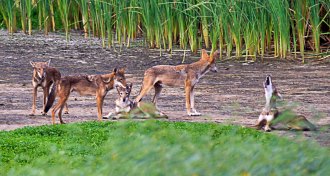 Genetics
GeneticsDNA from extinct red wolves lives on in some mysterious Texas coyotes
Mystery canids on Texas’ Galveston Island carry red wolf DNA, thought to be extinct in the wild for 40 years.
-
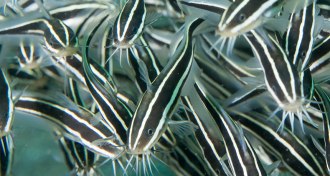 Animals
AnimalsScientists name 66 species as potential biodiversity threats to EU
North America’s fox squirrel, the venomous striped eel catfish and 64 other species are now considered invasive in the European Union.
-
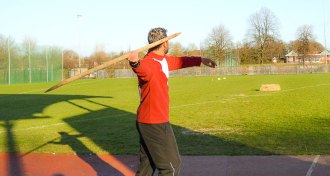 Anthropology
AnthropologyWhy modern javelin throwers hurled Neandertal spears at hay bales
A sporting event with replica weapons suggests that Neandertals’ spears may have been made for throwing, not just stabbing.
By Bruce Bower -
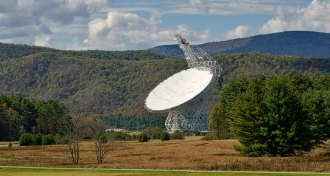 Space
SpaceIt’s time to start taking the search for E.T. seriously, astronomers say
Astronomers are hoping to make looking for alien technology an official science goal of NASA.
-
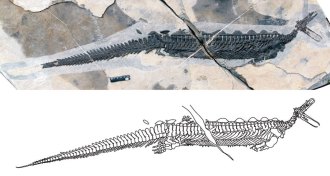 Paleontology
PaleontologyTiny eyes make a bizarre, ancient platypus-like reptile even weirder
An ancient oddball marine reptile had teeny-tiny eyes, suggesting it probably used senses other than sight to catch food.
-
 Earth
Earth50 years ago, scientists tried to control earthquakes with earthquakes
In the 1960s, researchers proposed preventing a big earthquake by creating smaller ones. That hasn’t quite worked out.
By Kyle Plantz -
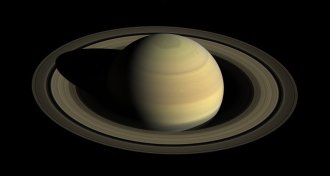 Planetary Science
Planetary ScienceRing ripples reveal how long a day lasts on Saturn
Clues in Saturn’s rings divulge the planet’s rotation rate: 10 hours, 33 minutes, 38 seconds.
-
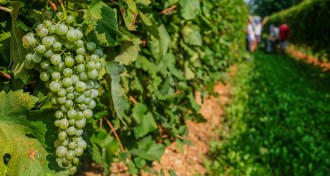 Agriculture
AgricultureProsecco production takes a toll on northeast Italy’s environment
The soil in Northern Italy’s prosecco vineyards is washing away.
-
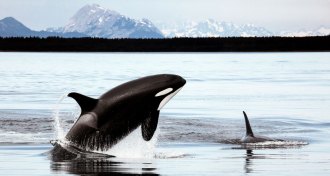 Animals
Animals50 years ago, scientists studied orcas in the wild for the first time
The study of killer whales has come a long way since the capture of seven in 1968 allowed scientists to study the animals in their habitat.
By Mike Denison